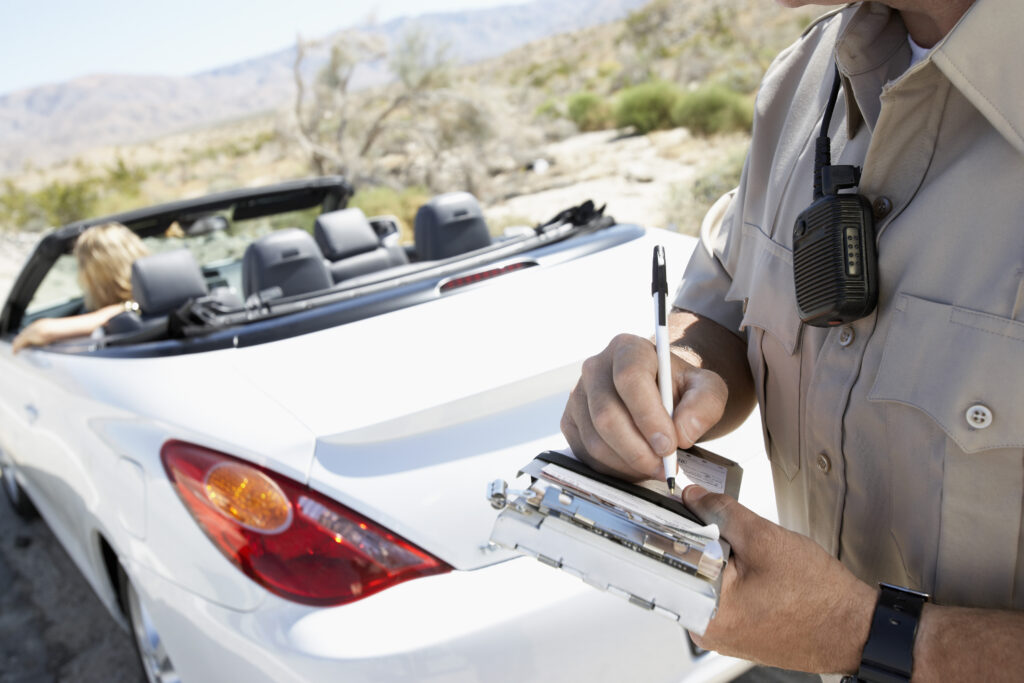Every driver should have auto insurance to protect themselves. Not having enough to pay for an accident can financially ruin you. But how much do you need? The answer to this question depends on your situation.
Some people can afford a lot of coverage. Others might have to buy certain types because they’re leasing or financing their car. All states (except New Hampshire and Virginia) require a minimum amount of insurance protection to drive. As you can see, how much you should get varies for each person.
This article will break down which types of car insurance you need. It’ll also explain how much of each you should have. Finally, you’ll learn the reasons for carrying a high amount of coverage. This info will help you make informed decisions when you decide to go out and shop for a policy.
Selecting Coverages and Limits
There are two questions to focus on when wondering how much insurance you should buy. The first is what types of coverage you need. As a driver, you might want any combination of:
- Liability (most states require this at minimum)
- Collision
- Comprehensive
- Personal injury protection
- Uninsured (UM) and underinsured (UIM) motorist
- MedPay
- Rental reimbursement
- Roadside assistance
- Rideshare coverage
- Gap
- Umbrella insurance
The second question is how much coverage should you purchase. That is, what should your limits be? This is also something that depends. The answer normally relates to how much you can afford to buy at the time. But it could also be for other reasons, such as:
- Where you live
- The value of your car
- State requirements
Liability Insurance
Liability insurance coverage protects you from having to pay for expenses if you’re at fault in an accident. This means that if you get into an accident, you won’t have to pay for the damages outright. You’ll need this to drive almost everywhere in the US as most states require it.
There are two forms of liability:
- Property damage liability. This protects you from any damage you cause to property, such as light posts, trees, buildings, etc.
- Bodily injury liability. This covers injuries to the other party in an accident. It pays for medical expenses, funeral costs, long-term care, etc.
How Much Should You Have?
Every state besides New Hampshire and Virginia requires a certain amount of basic liability. If you’re wondering how much liability coverage you need for your car, it depends on your state’s minimum requirements. Be sure to check the amount of liability protection that your state mandates. Your agent will also have this info for you. However, you should consider buying as much as you can afford. This will ensure you have full protection from any expenses that you might need to pay.
Collision and Comprehensive
When your auto insurance policy includes collision and comprehensive, you have what’s known as full coverage. Collision protects you from any accidents you get into with other cars or objects on the road. It also kicks in regardless of fault.
Comprehensive covers any “acts of God” or random events that can damage your car. This could be:
- Theft
- Fire
- Vandalism
- Natural disasters e.g., hailstorms, hurricanes, tornadoes, flooding, etc.
- Hitting an animal
- Any other damage that’s not from a collision.
Full coverage only pays for injuries and property damage beyond your control. Liability pays for the expenses when a crash is your fault.
Who Needs Them?
States don’t require you to have collision or comprehensive coverage. But if you’re financing or leasing your car, you’ll likely need it. Be sure to check with your lender about what types of insurance they require. Collision and comprehensive will most likely be at the top of the list.
Ben Guttman, a broker for North Central Insurance Agency, says that having collision and comprehensive is a “good idea,” even if it’s not a requirement. Living in a natural disaster-prone area or one that has lots of crime could be a reason to get comprehensive. It’s also smart to have collision coverage if you live in a place that sees lots of accidents per year.
However, Guttman points out that it may not be worth it if you drive a “really old car.” This is because you might be paying more yearly for the deductibles and premiums than the vehicle is worth.
Personal Injury Protection (PIP)
Personal injury protection coverage pays hospital bills and reparations for injuries you or your car’s passengers sustain in an accident. It doesn’t matter if you’re at fault or not. Here are some of the most common expenses that PIP covers:
- Medical bills
- Lost wages
- Rehab costs
- Funeral costs
- Loss of services (household chores, landscaping, etc.)
Who Needs It?
Some states require you to have PIP. Make sure to consult your state’s insurance policies or visit our guide on PIP to see the complete list of who requires it. In other states, insurers only have to offer you PIP, but you can decline it. For example, Washington state has providers that offer it. But if you don’t decline it, companies will automatically add it to your policy.
Uninsured (UM) and Underinsured Motorist (UIM)
UM and UIM protect you from drivers without coverage or those who don’t have enough. These two will pay for damages or medical bills if you get into an accident with an uninsured or underinsured driver. This type of insurance also works if the accident is a hit-and-run.
Who Needs UM and UIM?
Several states require UM and UIM. You’ll want to check your state’s insurance requirements to see if you need it. Like PIP, you’ll likely need to reject this coverage in writing if it’s optional in your state.
Medical Payments (MedPay)
MedPay is another type of insurance that covers your medical costs. It’ll do this whether you’re at fault or not. MedPay takes care of:
- Ambulance and EMT fees.
- Doctor and clinic visits
- Surgeries
- X-rays and other tests
- Hospital visits
- Prosthetics
- Health co-pays and deductibles
- Funeral expenses
Who Needs MedPay?
MedPay is optional in most states. Two states require it:
- New Hampshire – with a minimum limit of $1,000 (if you buy car insurance)
- Maine – with a minimum limit of $2,000
Even though it’s mostly optional, you might still think about getting it. Medical fees can be massively expensive and exceed thousands of dollars. MedPay will make sure that you don’t have to worry about paying out of pocket for these expenses. As for how much to buy, you should consider getting as much as you can afford to fully protect yourself.
Rental Reimbursement
This will cover the costs of a rental car if your current vehicle is out of commission due to an accident. It’s helpful to have if you must commute and have no backup options. This type of coverage is optional and will depend on your own needs.
Roadside Assistance
Roadside assistance will help you if you’re stuck on the side of the road. It covers towing expenses if your car can’t drive. This coverage is optional and a bonus. You might consider buying this if you drive lots of miles. The reason is that driving more increases your chances of getting stranded on the road. If you worry your vehicle is so old that you’re likely to become stranded, this inexpensive policy add-on can lower stress (and blood pressure).
If this coverage is important to you, get the best insurers for roadside assistance to set your mind at ease.
Rideshare Insurance
Rideshare coverage is specifically for people who drive for Uber and Lyft. Your regular policy won’t cover expenses from an accident if it happens while you’re using it commercially. Rideshare insurance fills this gap while you’re doing business for a company. You should consider it if you drive for a ridesharing company just in case an accident occurs.
Guaranteed Asset Protection (Gap)
Gap pays off your loan if you total a financed vehicle. It’ll cover the difference between its actual cash value and the remaining balance on your loan. You should consider adding this if your car is new or worth a lot of money. Otherwise, you’ll be stuck paying back the loan by yourself.
Umbrella Insurance
Umbrella insurance protects you if costs from an accident exceed your current limits. Adding this to your policy adds coverage for:
- Injuries
- Possible lawsuits
- Property damage
- Personal liability
Think of umbrella insurance as bonus coverage for you. It’s smart to have this because costs can often go way over your limits. This would leave you to pay the rest out of pocket. An umbrella policy helps you avoid that situation.
When You Should Buy More Coverage
Everyone needs insurance to drive, but some people need to buy more for various reasons. The general idea is that if you can afford it, you should buy as much as you can. Doing so will reduce the likelihood of you having to pay any money out of pocket.
Luxury Cars
If you own an expensive vehicle or live in a wealthy area, you should buy more insurance. This is because cars around you will cost more to repair or replace. People in richer areas might also be more likely to sue because they can afford to. More coverage will protect you from this.
Repairs Are Expensive
It’s also worth noting that repairing a vehicle is expensive. This alone is a good reason to set high limits on your insurance. And that’s not even the biggest financial risk. Medical expenses related to car accidents are notoriously costly. You don’t want your coverage falling short if you cause an accident with severe injuries.
Reducing your exposure to the risk of financial ruin is as easy as raising your limits. But you may need additional coverages that your current provider doesn’t offer. That’s one reason why it’s a good idea to periodically compare quotes from major insurers.
Frequently Asked Questions
How high should I set my limits?
States often have unique requirements, but you should aim to set your limits as high as you can afford. Insurance broker Ben Guttman recommends limits of “100/300/100, but obviously, it depends on the client.” He adds that “a lot of it depends on the average vehicle, where you drive, and what lawsuits are settling for.”
You never know how much a car accident could cost you. Repair costs and medical expenses can add up fast. Setting your limits high can help keep you from paying any of your own money toward an accident.
Are the state minimum requirements enough?
No, your state requirements are not enough to protect you from every possible situation. Keep in mind that once the costs from an accident exceed the state requirements, “you are responsible for everything else,” says Guttman. He adds, for example, “In Maryland, the State Minimum for Property Damage is $15,000. The average new vehicle is pushing $40,000 and I see many above-average vehicles on my commute.” If you cause an accident and severely damage or total it, “$15,000 isn’t going to go far,” warns Guttman.
Should I have collision and comprehensive if my car isn’t worth much?
It depends. Living in a high-risk area for natural disasters or crime might make you more likely to buy either. If you need the car and want to make repairs from an accident or random event, then you might want to buy insurance for extra peace of mind. Windshield replacement and repair is expensive and other parts can cost you hundreds or thousands. Having coverage will help you avoid paying a bunch of money at an inopportune time.
Which optional coverages should I choose?
States and lenders only require a certain amount of insurance. Anything above and beyond minimum requirements is up to you. Per Guttman, “Rental reimbursement coverage is the most important if you only have one vehicle. Otherwise, a claim can lead to problems getting to work or transporting the kids.” You should also consider adding roadside assistance. If you get stuck on the side of the road, you don’t want to be left stranded.


